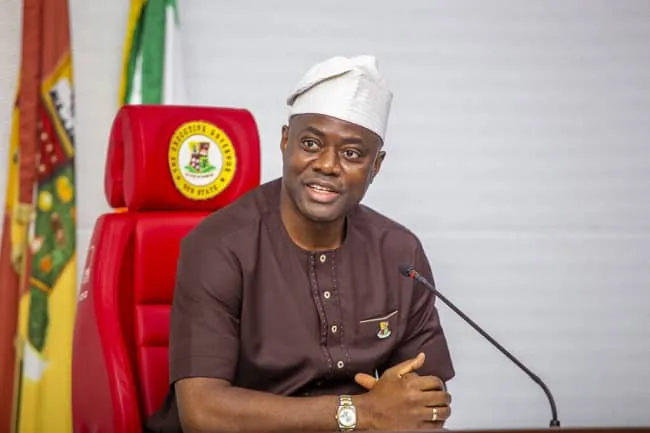By Busola Oworu
Copyright tribuneonlineng

Oyo is on track to achieve a record-breaking ₦100 billion in Internally Generated Revenue (IGR), following the successful implementation of reforms across key sectors by Governor Seyi Makinde’s administration.
The State Commissioner for Information, Prince Dotun Oyelade, confirmed that Oyo has been ranked the best place to live in Nigeria over the past year, based on quality of life, infrastructure, service delivery, and security. The ranking comes from the State Performance Index (pSPI), managed by an independent consultancy.
According to Oyelade, the state’s IGR has seen a dramatic improvement in recent years.
“While the previous administration struggled to generate ₦15 billion annually, Governor Makinde’s administration increased IGR to ₦65 billion in 2024. As of July 2025, the state had already generated ₦58 billion — just ₦7 billion shy of last year’s total,” he said.
ALSO READ: 65th Independence: Tinubu to inaugurate renovated National Arts Theatre October 1
He noted that with this trajectory, the state is poised to exceed its own record by the end of the year, potentially reaching ₦100 billion and establishing itself as one of Nigeria’s leading financial hubs.
Unlike many other sub-national governments, Oyo’s revenue growth has not come at the expense of investors. Oyelade explained that the increase in IGR has been achieved without placing an additional burden on businesses. Instead, the administration has stimulated economic growth through strategic investments in agribusiness, infrastructure, and tourism.
One major contributor to this growth is the consistent monthly wage bill of ₦11.9 billion paid to over 130,000 workers. This month (September), the state paid ₦15.4 billion in salaries — a significant increase that reflects the government’s commitment to economic stimulation through regular wage payments.
In the healthcare sector, Oyelade highlighted the upgrading of 264 primary healthcare centres and the recruitment of over 3,900 healthcare professionals. These efforts, he said, have significantly revitalised the state’s healthcare delivery system.
He also referenced a recent visit by UNICEF’s Country Representative, Celine Lafocriere, who noted that Oyo State has recorded the highest level of engagement with UNICEF among all Nigerian states over the past two years.
On education, the Commissioner revealed that the staff strength in primary schools has doubled — from 13,730 in 2019 to 26,436 in 2025. In addition, over 10,500 teaching and non-teaching staff have been hired to support learning outcomes and improve youth development.
Governor Makinde’s education reforms have also led to the construction of 60 model schools, the building of 289 new classroom blocks, the renovation of 229 others, and the reintegration of more than 60,000 out-of-school children into the system.
To enhance administrative efficiency, four new educational zones have been established along with their supporting structures, while 2,000 new teachers have been employed through TESCOM.
Oyelade concluded that these strategic reforms in finance, health, and education are clear indicators of Governor Makinde’s commitment to sustainable development and improved quality of life for all residents of Oyo.



